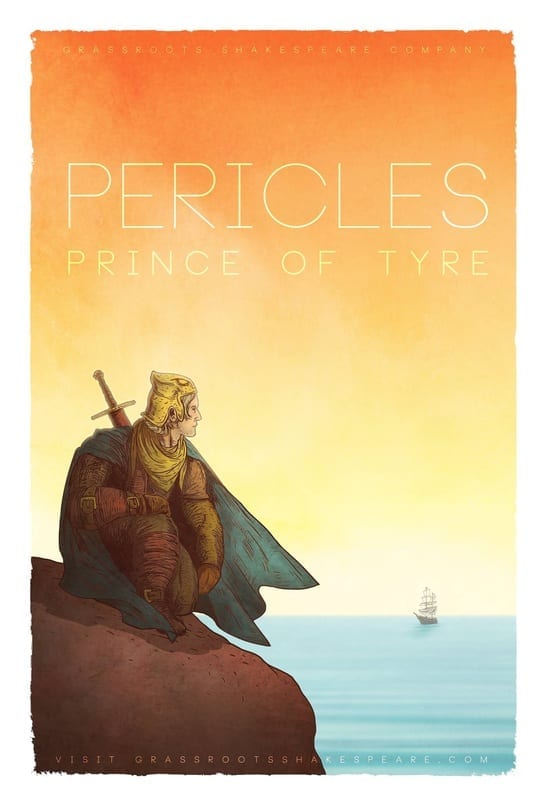PROVO — Over the course of Pericles, Prince of Tyre, the title character ages from a heartsick young man to an experienced middle-aged man. It’s a fascinating journey to watch him grow and gain wisdom through experience. Like Pericles, Grassroots Shakespeare Company has grown and matured. It is no longer the ragtag group of college students that it was five years ago; rather, it is a mature theatre company with artistic vision and its own brand of creative wisdom. This makes Pericles the perfect choice for a Grassroots production this year.

In Shakespeare‘s romance, Pericles is in love with the daughter of the king of Antioch. When he learns that she is in an incestuous relationship with her father, he leaves the city. In the course of his wonderings he is shipwrecked (twice), gets married, loses his family, and experiences some of the greatest joys and sorrows possible for mortal man. Although one of Shakespeare’s later plays, it is peppered with much older motifs, including a wife floating on the sea in a chest, a combat tournament, divine intervention, and an allegorical interpretation. This makes it (stylistically) one of his most medieval plays.
As the title character, Eric Geels is capable of serving as the one commonality across the play’s five acts. Geels has an authoritative command of the language, and it is easy to imagine his character growing up in the courts of ancient Greece with the stern discipline needed in a future ruler. Yet, Geels does not hesitate to show his character’s tender side, especially when Pericles is mourning the loss of Thaisa, his wife (played by Emma Robinson). Geels also excelled in the two recognition scenes at the end of the play that were particularly poignant, and he made them rival any of the more famous recognition scenes in the Shakespeare canon (such as in The Winter’s Tale or The Comedy of Errors).
Another important linkage among the scenes was Kailey Azure Green as Gower, who serves as a chorus—another medieval trope in the play. Green eagerly jumps into her monologues, and says each one with so much enthusiasm that I hardly noticed that she was burdened with much of the play’s exposition.
The other six actors in the cast all made valuable contributions that made Pericles one of the most cohesive Grassroots shows yet. As Helicanus, McKay Nicoll provided an excellent contrast to the sycophantic lords of Tyre. Moreover, Helicanus’s stalwartness and wisdom made him the perfect counselor and friend to the noble Pericles. James Bounous played both Cleon and Lysimachus, and though both characters are rulers (of Tarsus and Pentapolis, respectively), Bounous was careful to endow both with different traits. Both characters were believable—Cleon in his dynamic with his wife and Lysimachus for his generosity—and I enjoyed both portrayals immensely.
One way that Grassroots has made improvements in recent years is in the visual aspects of their productions. Pericles featured a painted backdrop (as some Renaissance playing spaces had) that showed a map of the Eastern Mediterranean setting of the play. Moreover, the cast color-coded their costumes so that the citizens of a city dressed in the same color as the town’s territory on the map. This not only made the sprawling story easier to understand, but it also made Pericles a more unified play than its script would indicate.
In some of UTBA’s early reviews for the company, the site labeled Grassroots Shakespeare Company’s productions as “experimental theatre” because they were based on the bold idea of doing Shakespeare the way that he did it: with no director, no designers, and little rehearsal time. Five years later, the Grassroots formula is so tried and true that it is now absurd to call them an experimental theatre company. In short, Grassroots—like Pericles—has grown up and matured to become a fine member of the community.
[box type=”shadow”]Public performances of Pericles, Prince of Tyre were March 27 and 28. The show will continue touring to middle and high schools in northern Utah for a few more weeks. For more information, visit www.grassrootsshakespeare.com.[/box]
